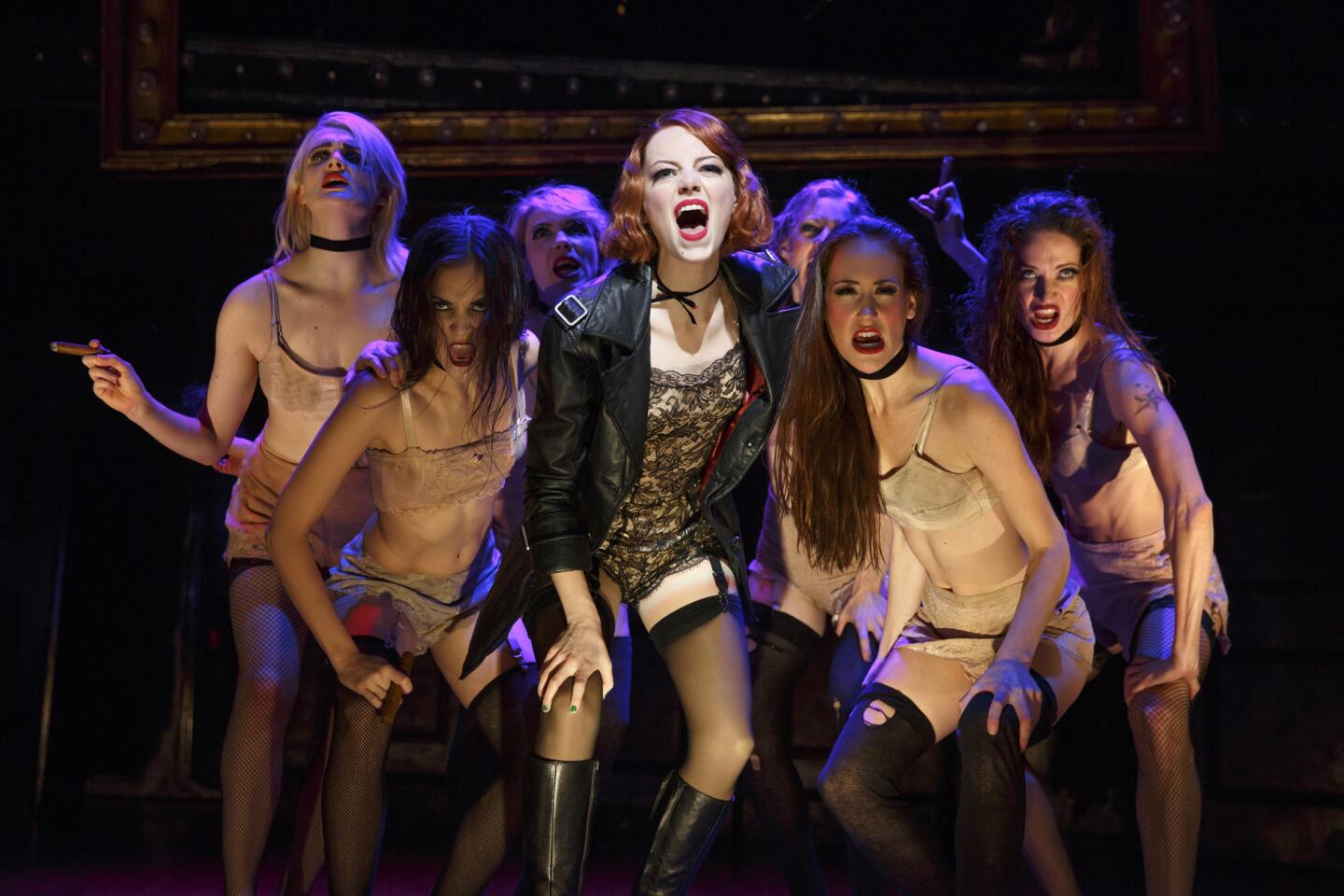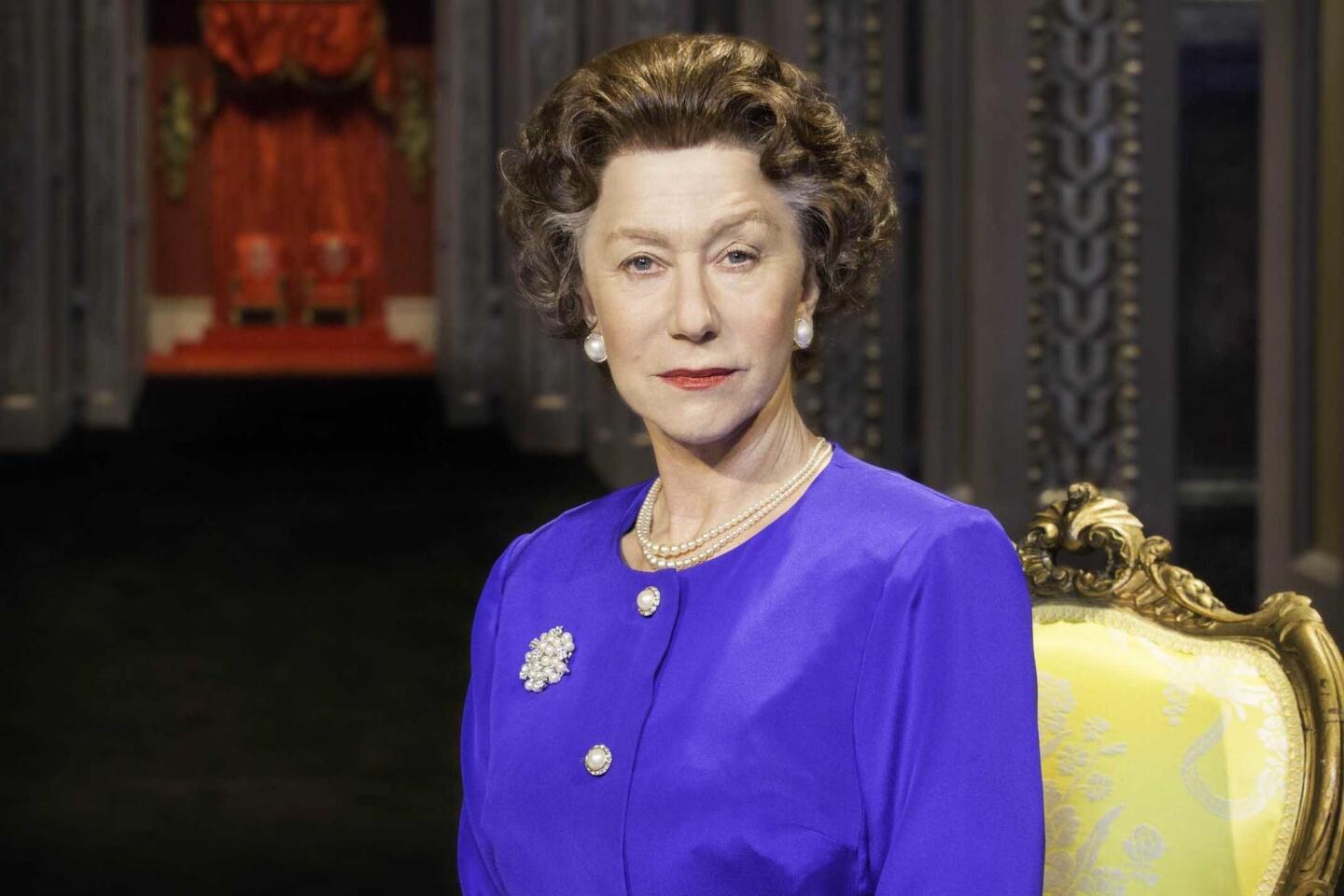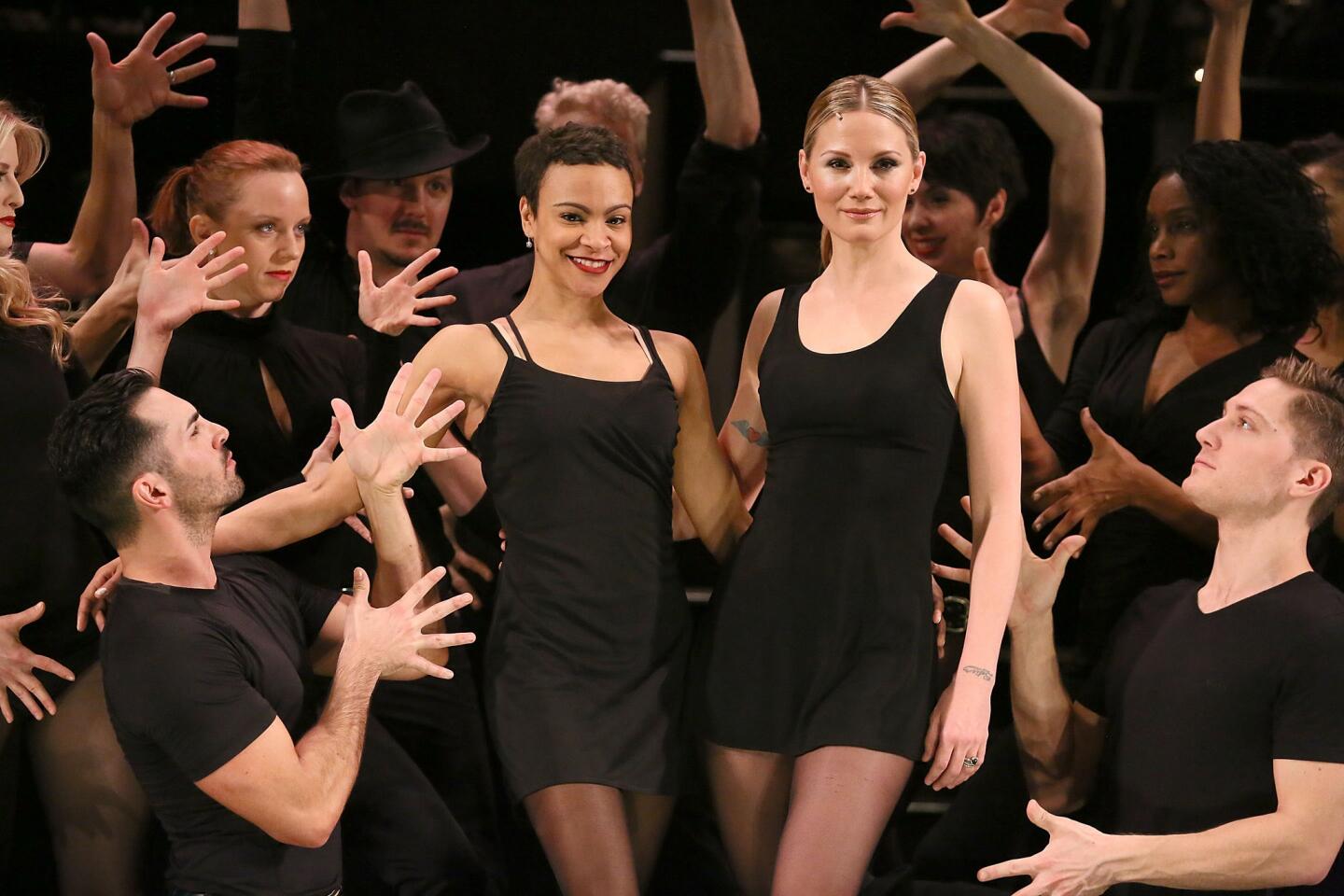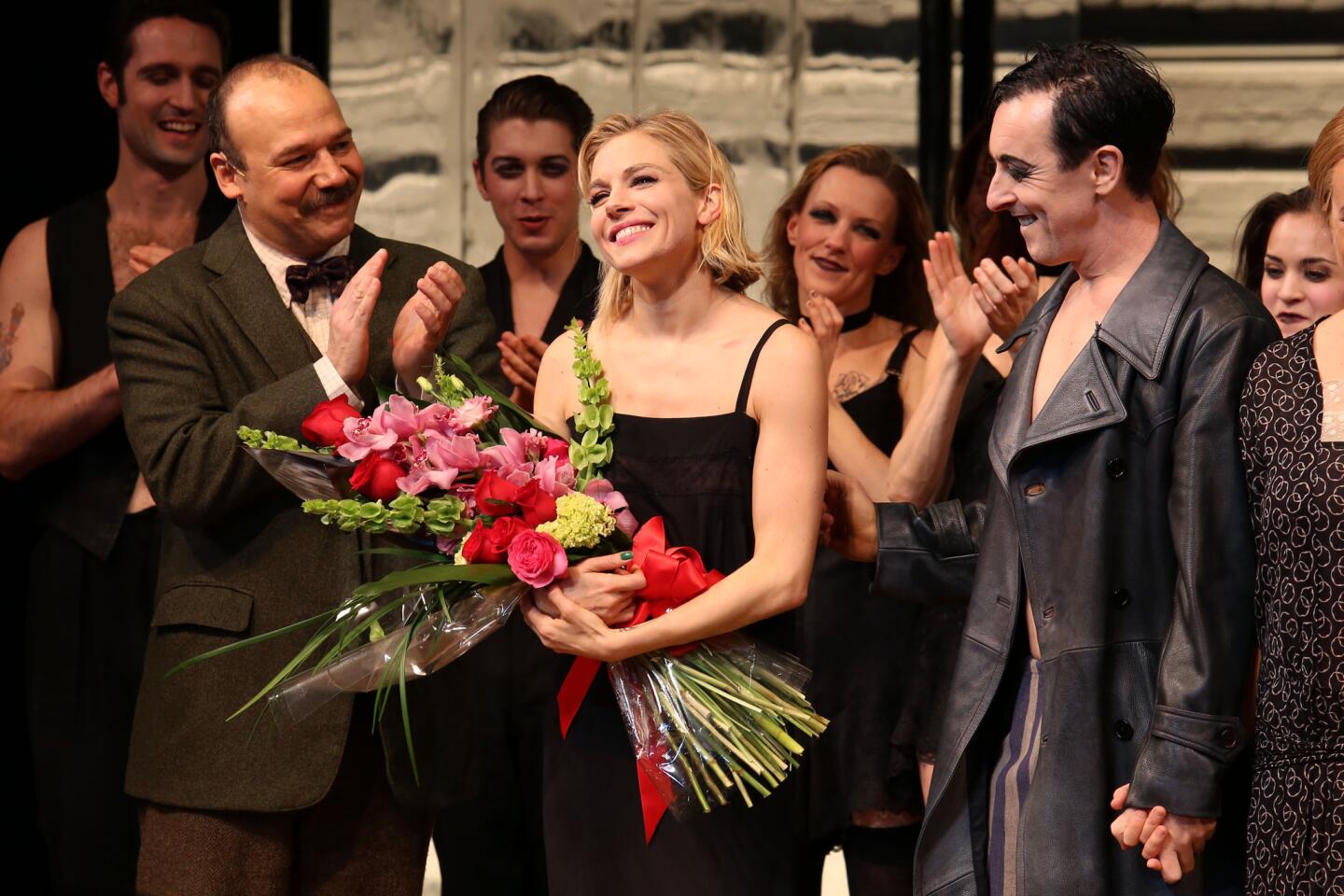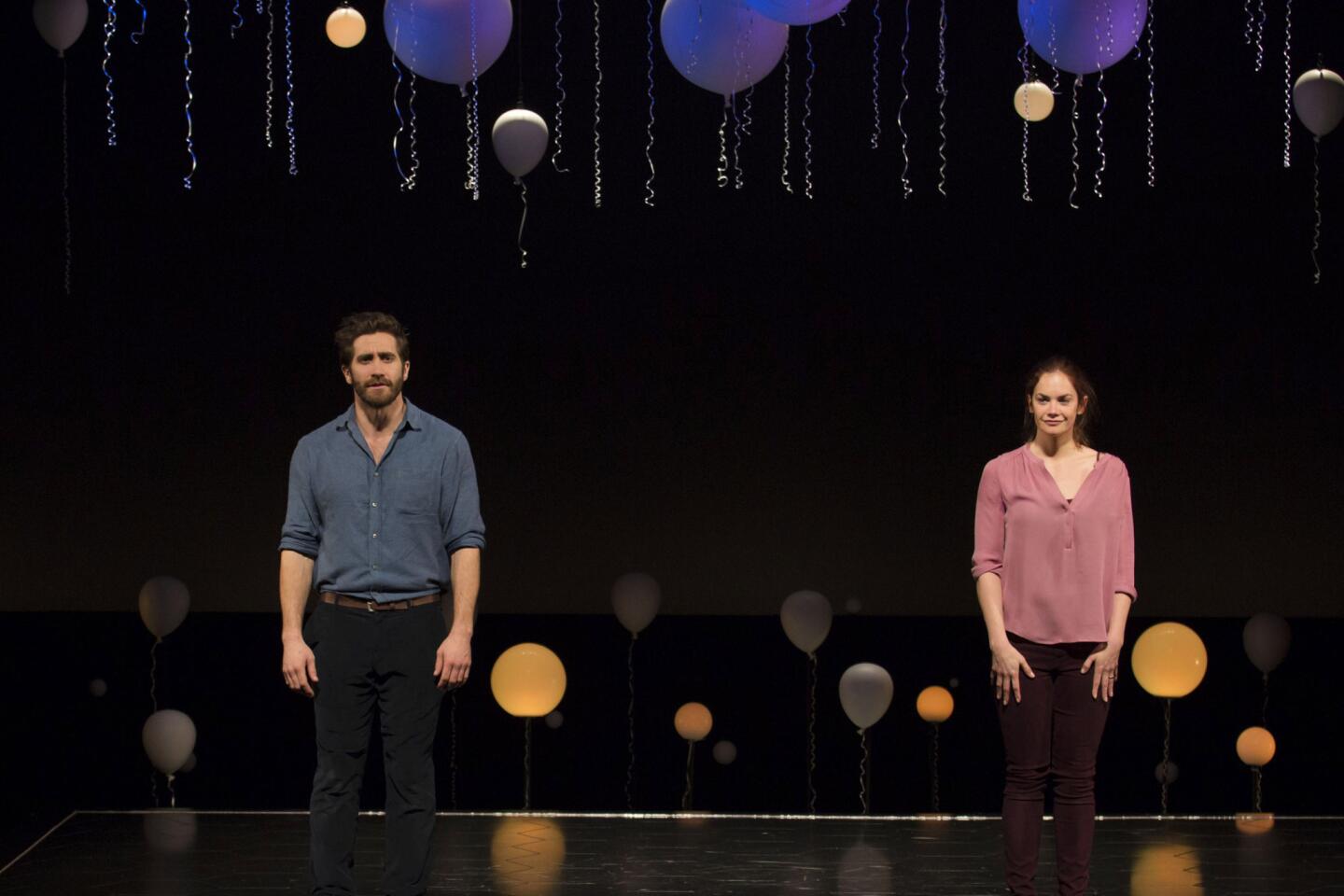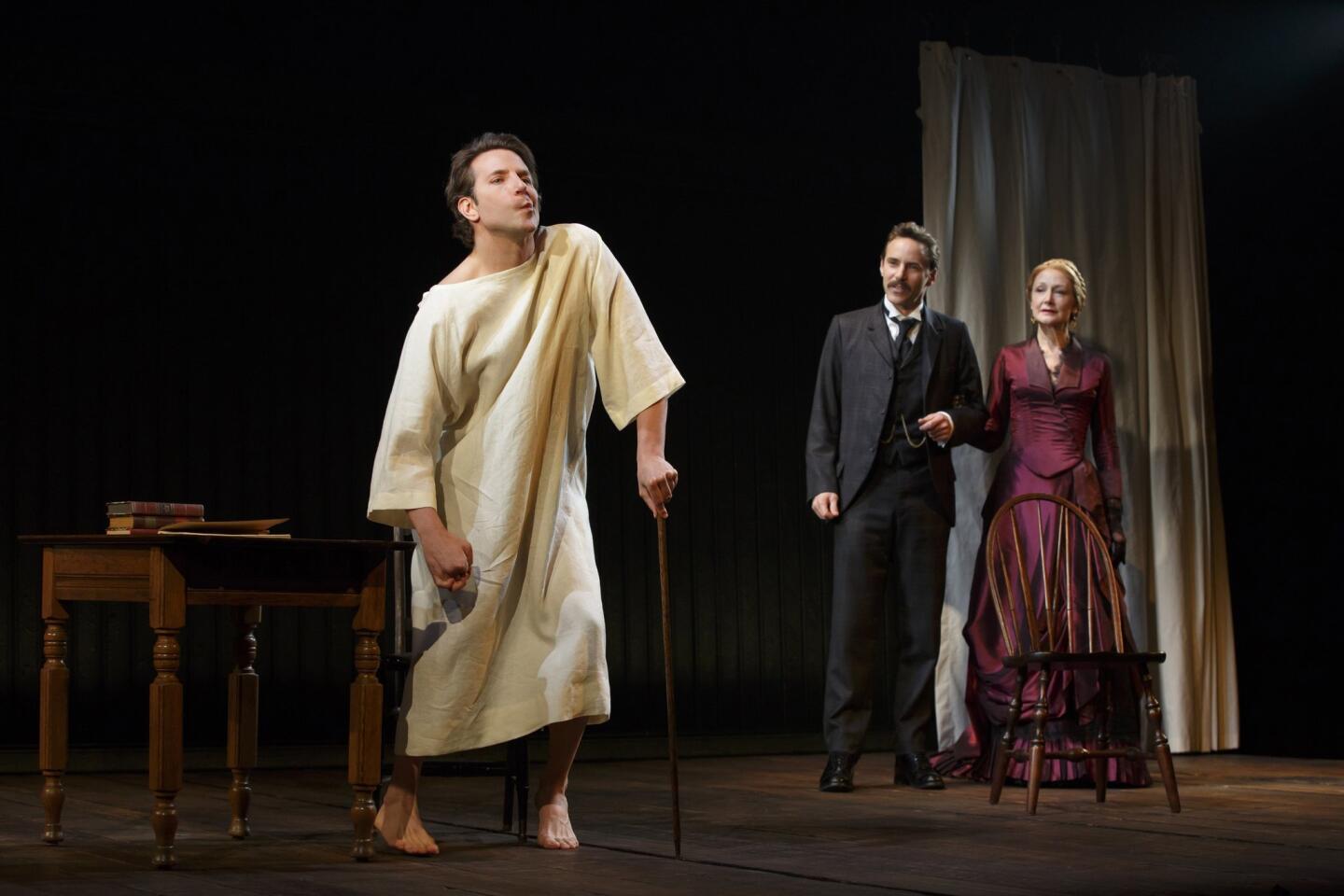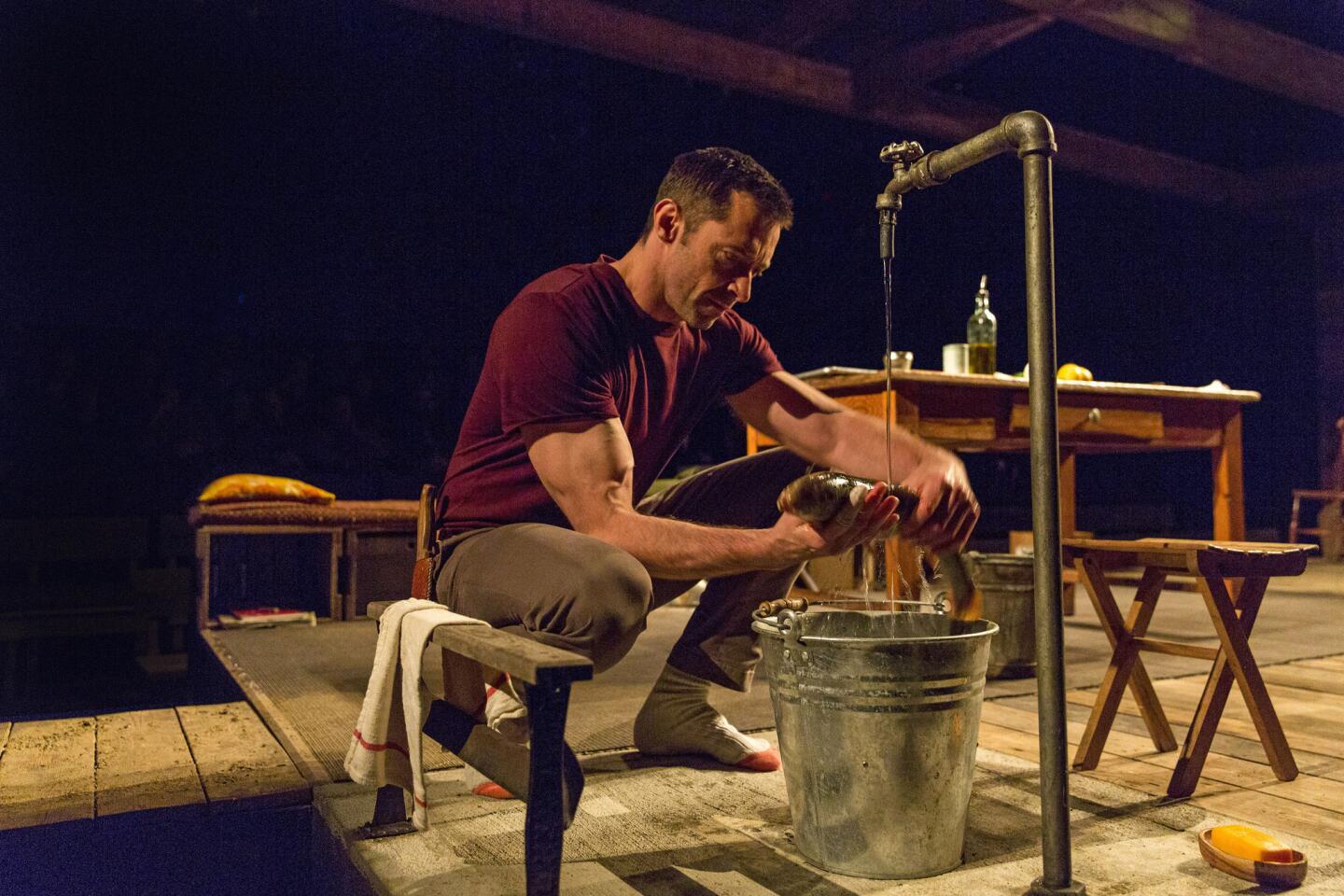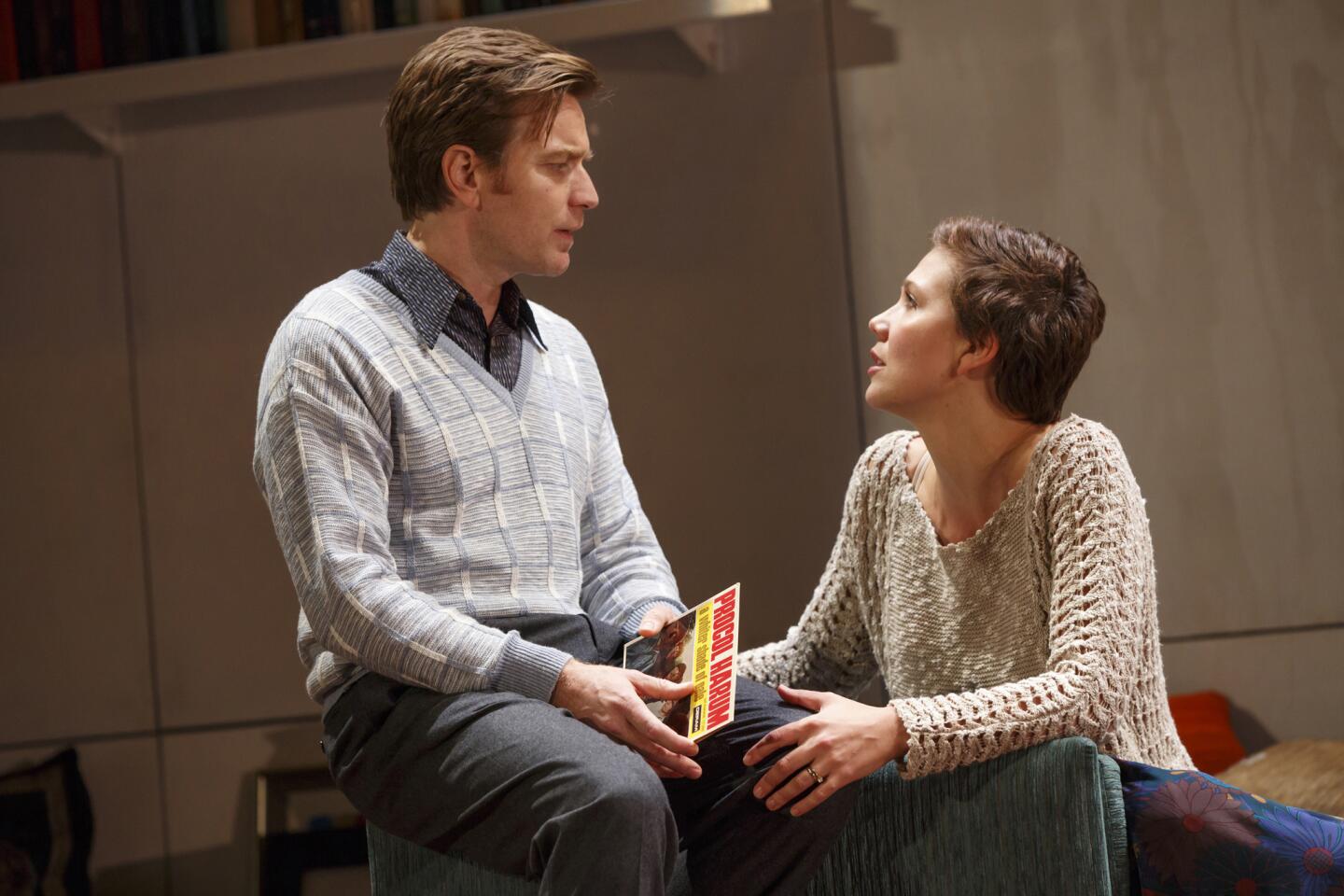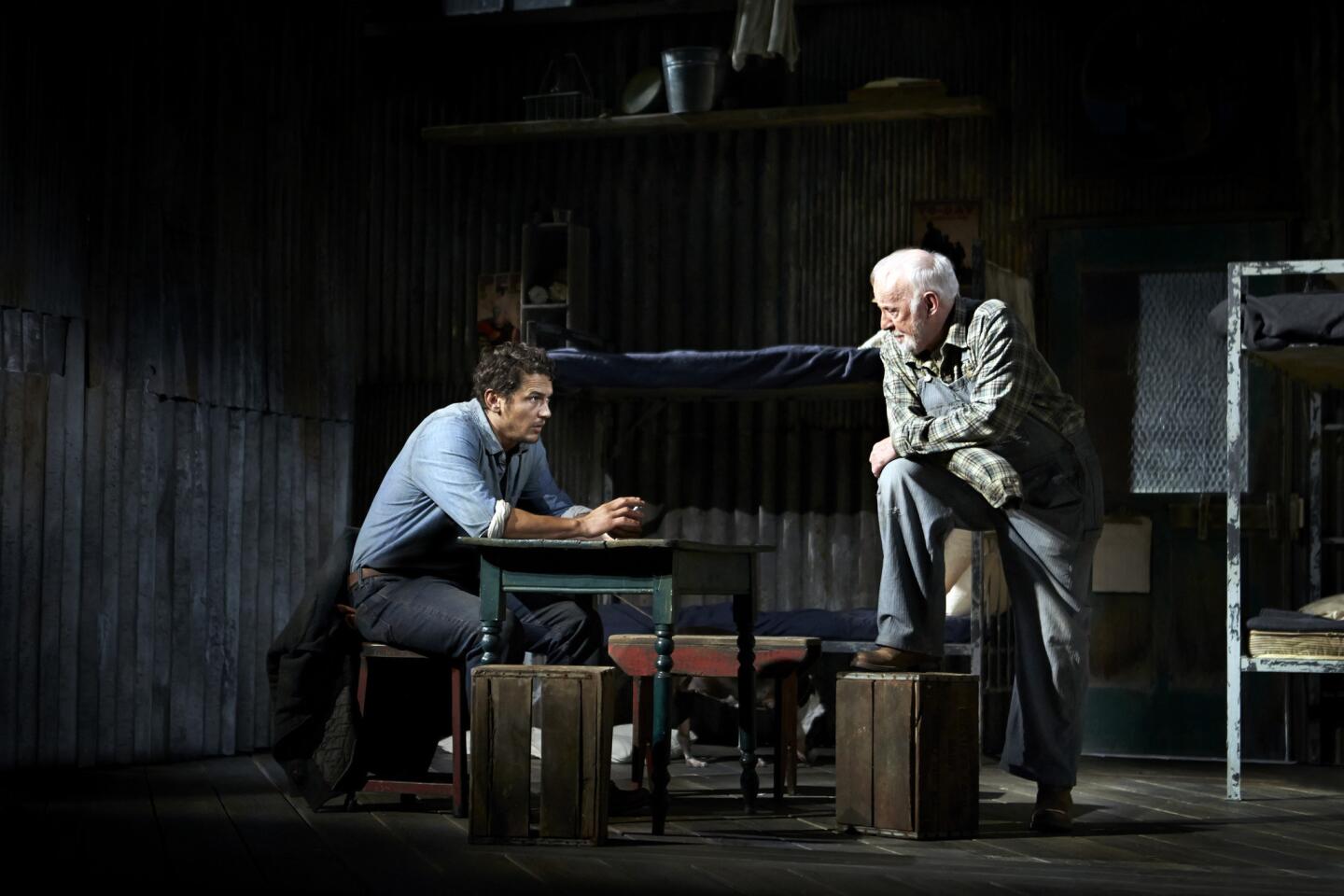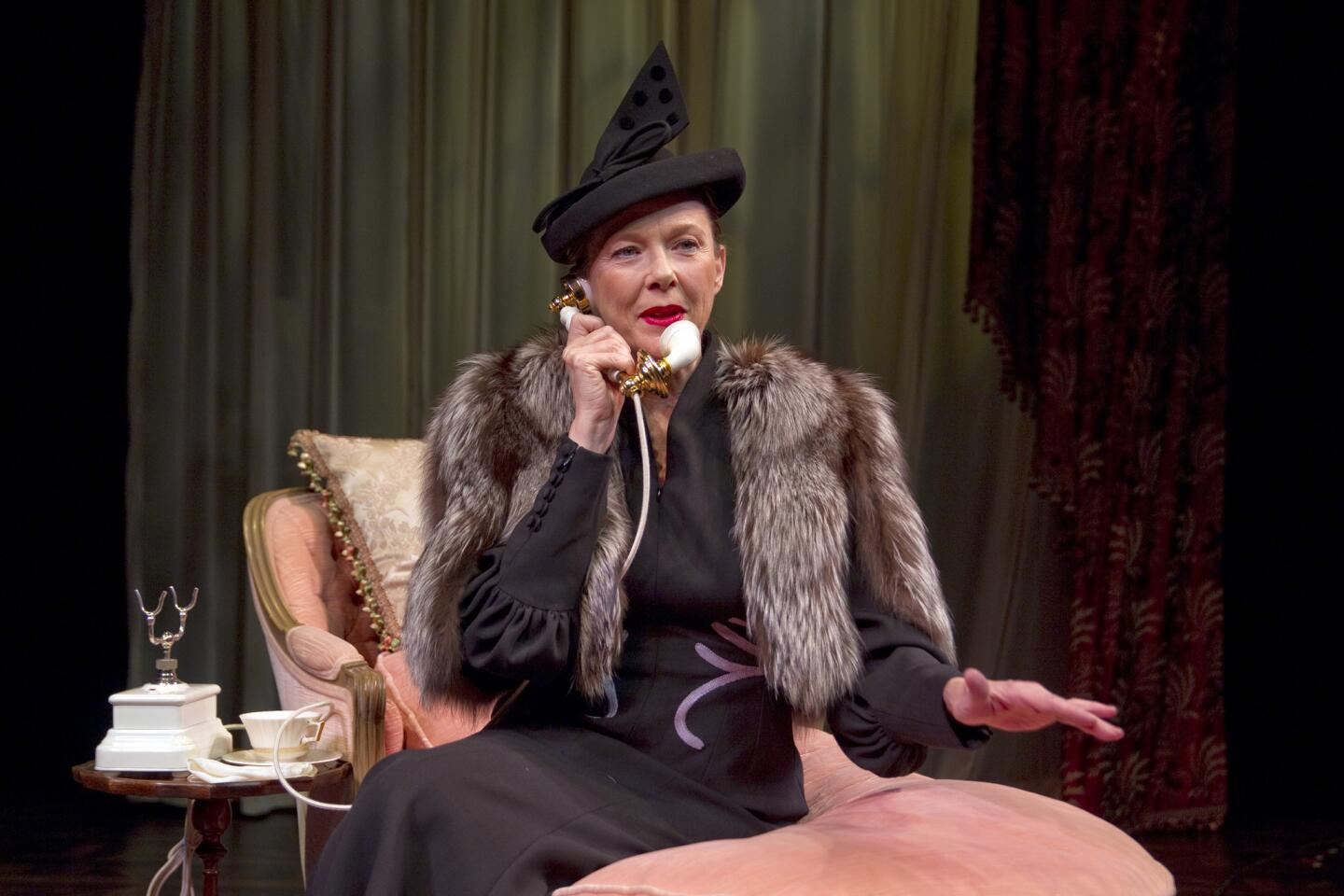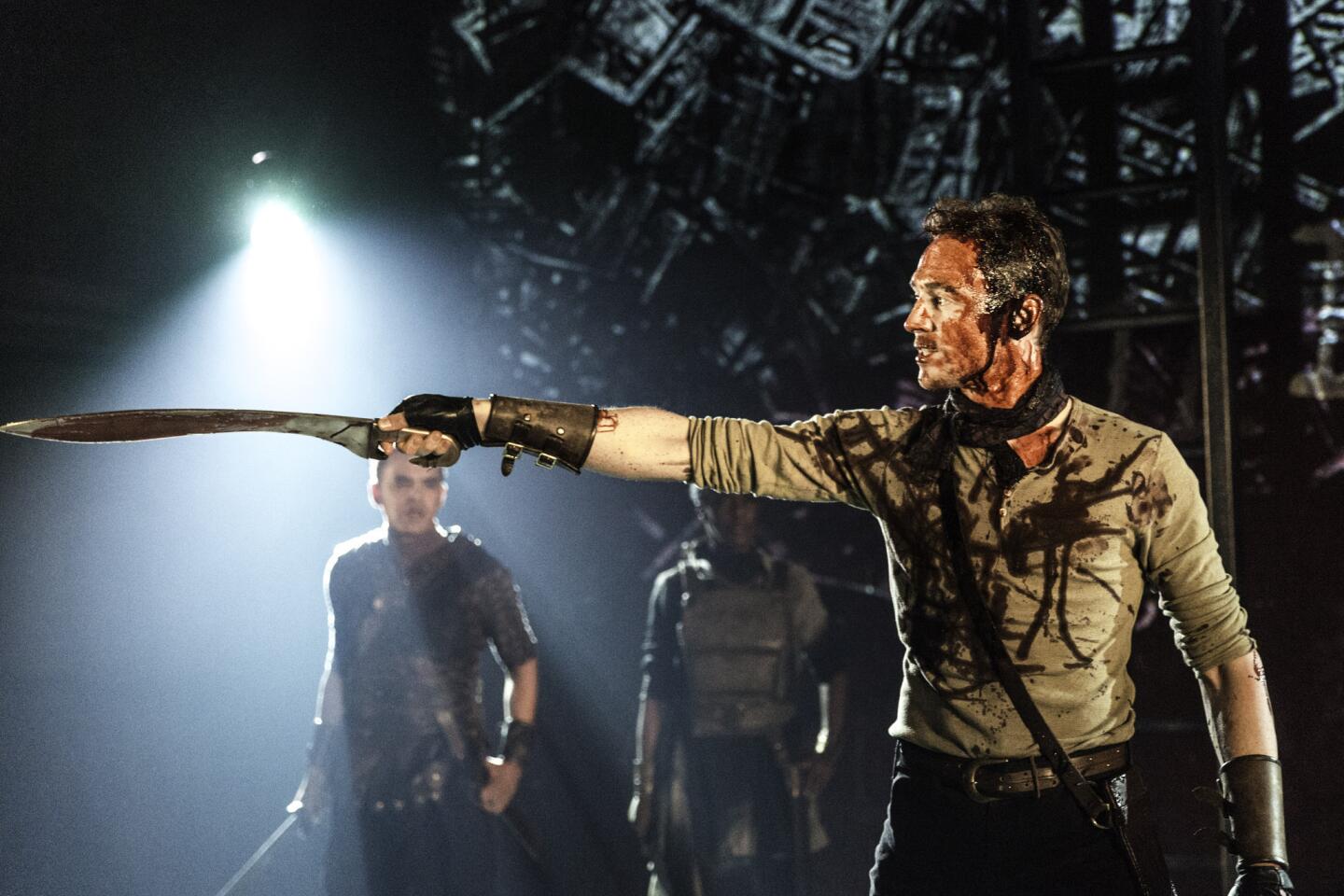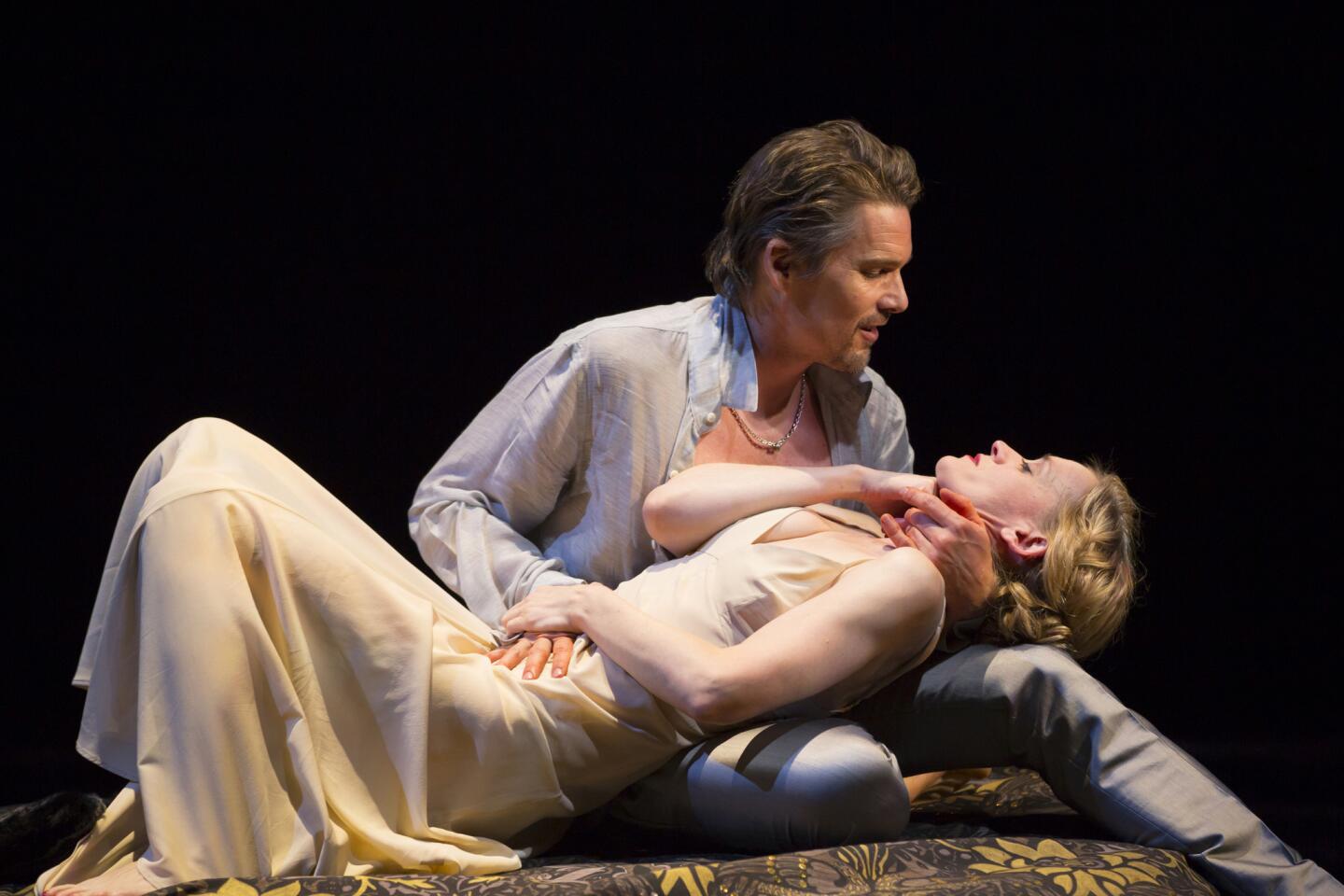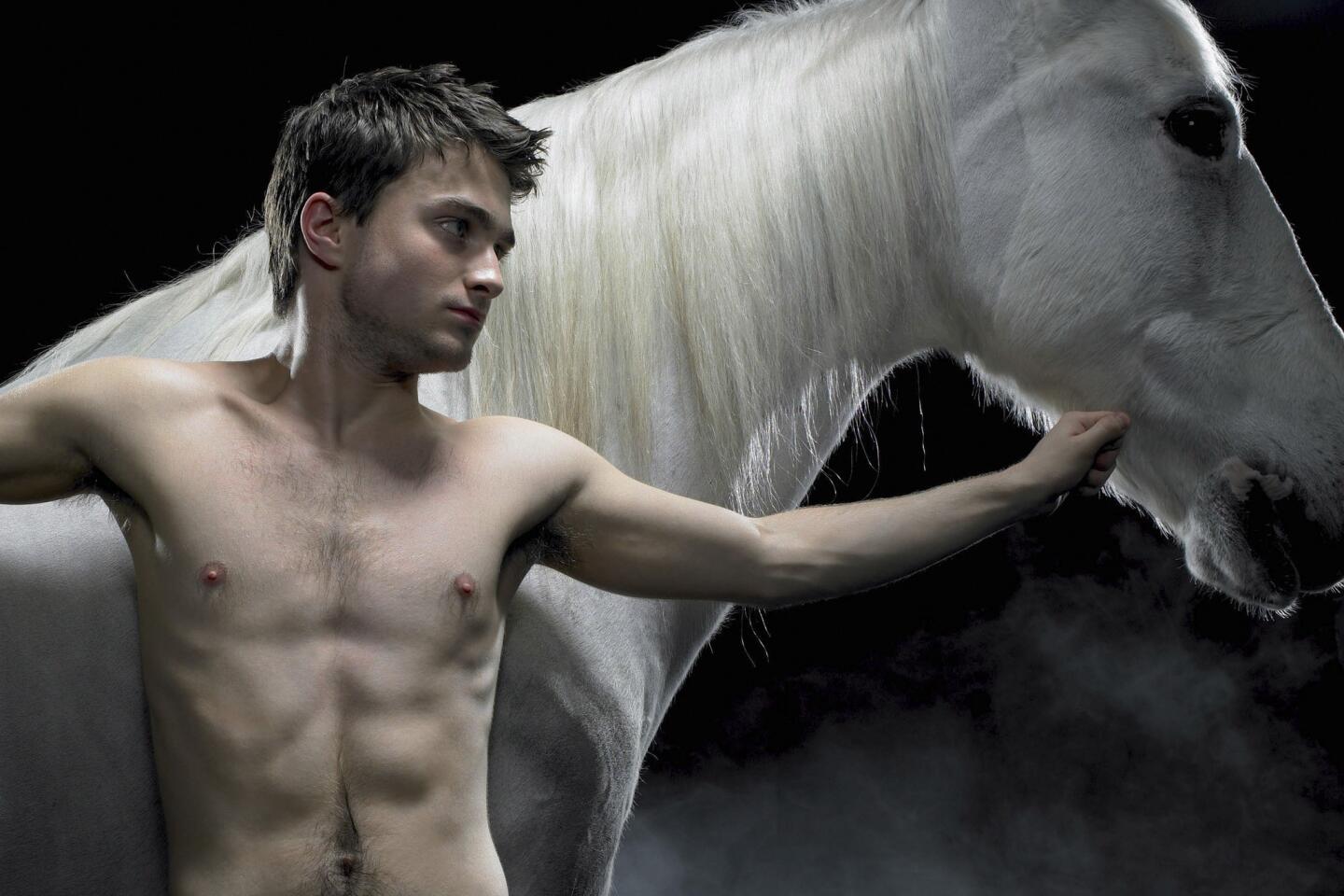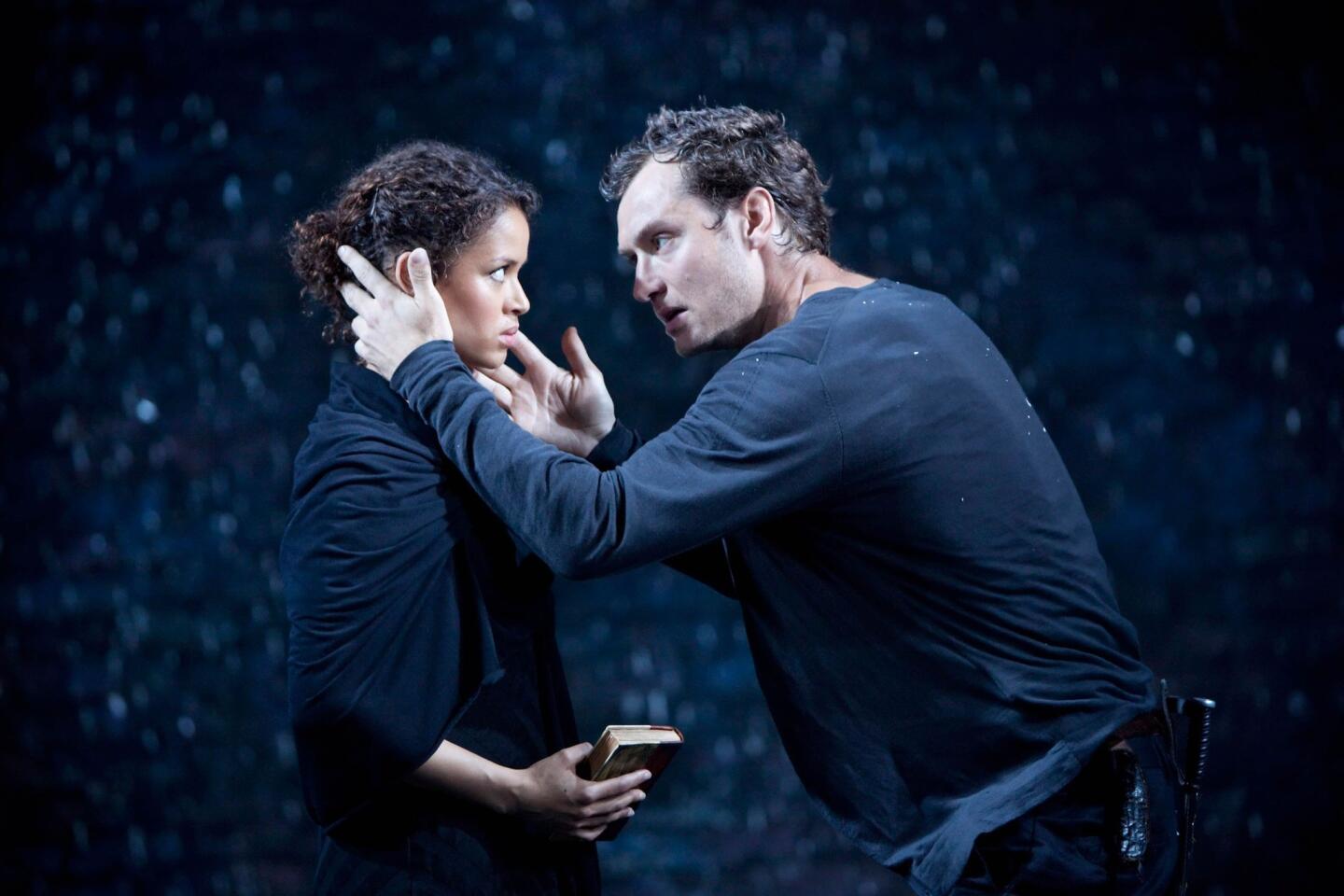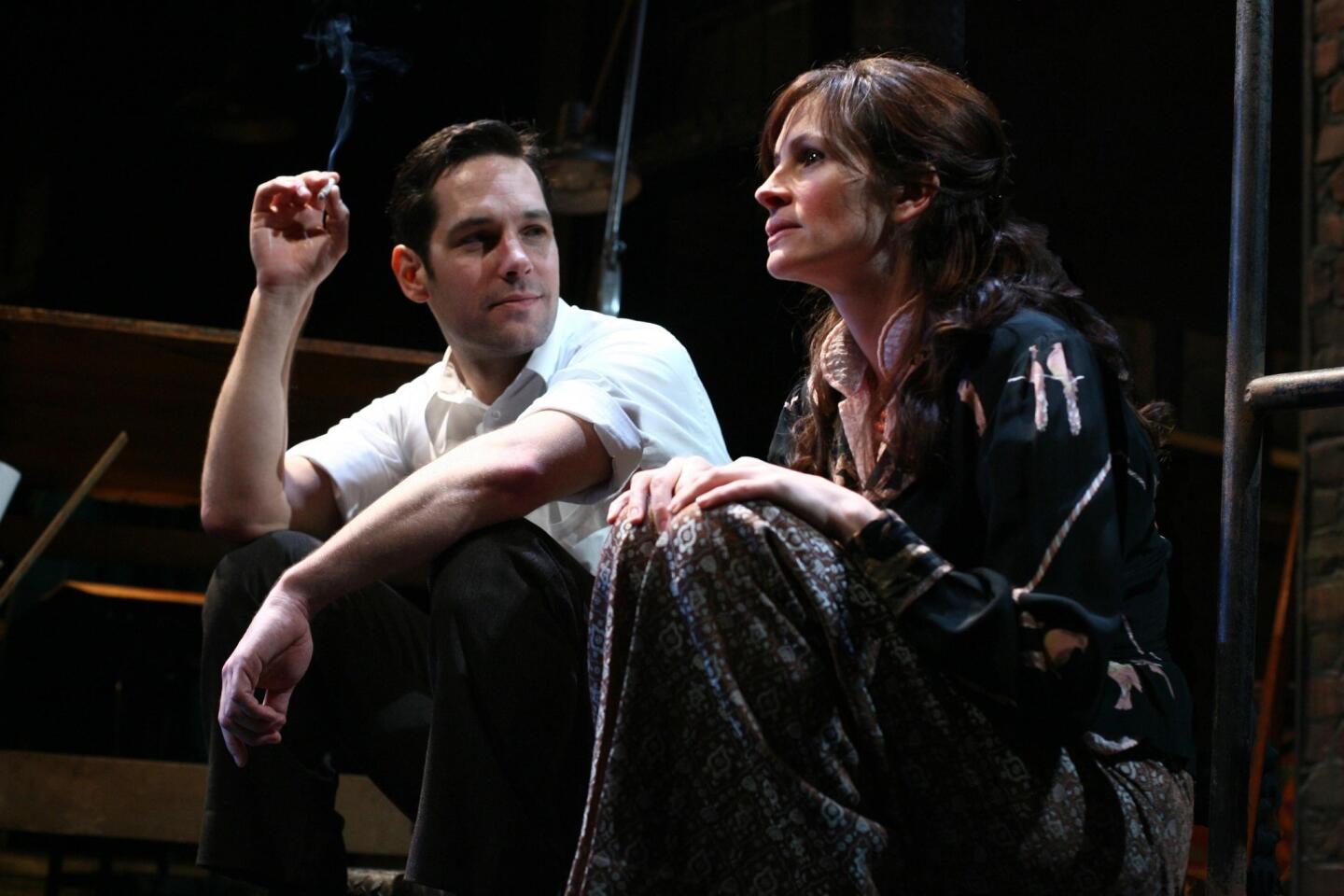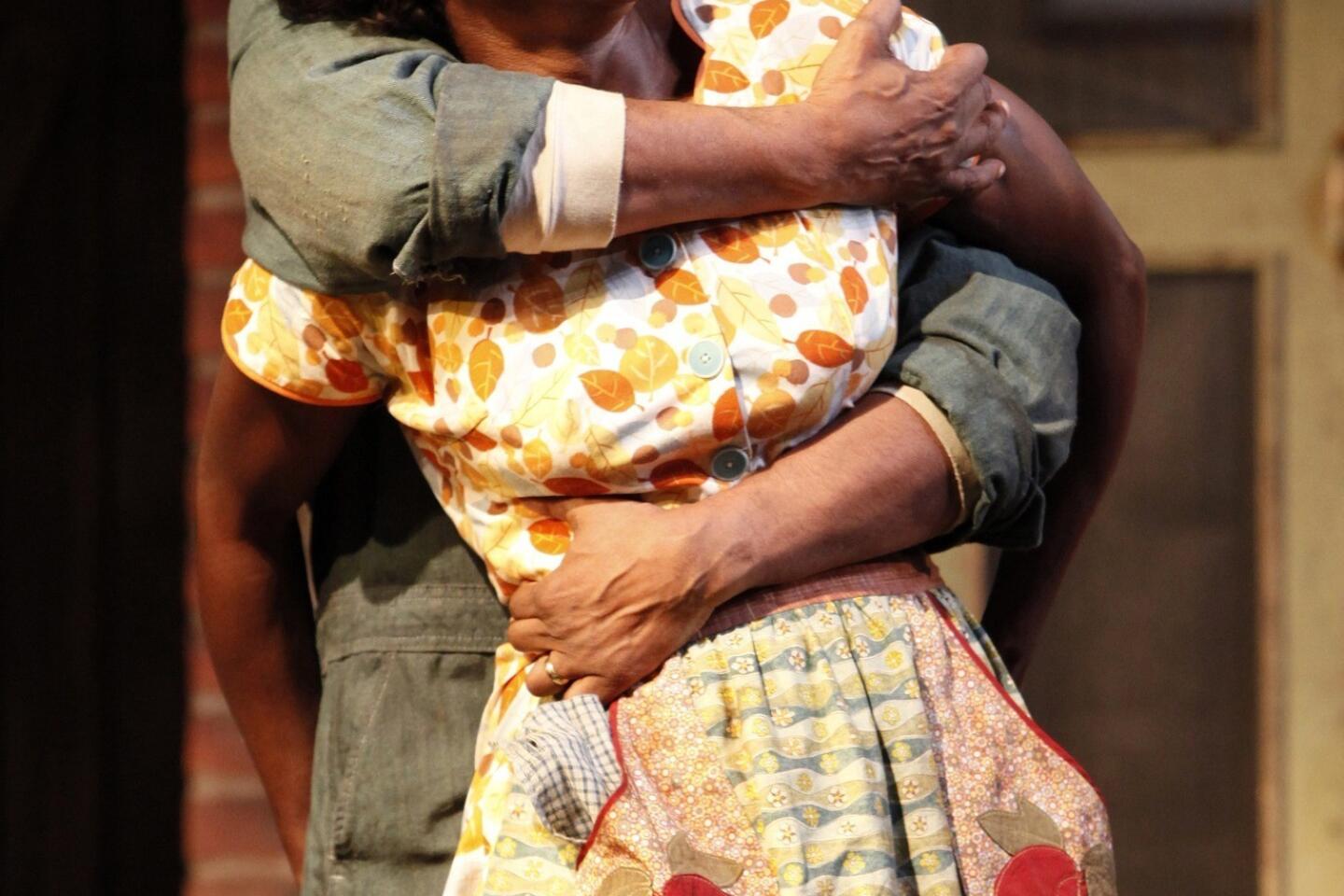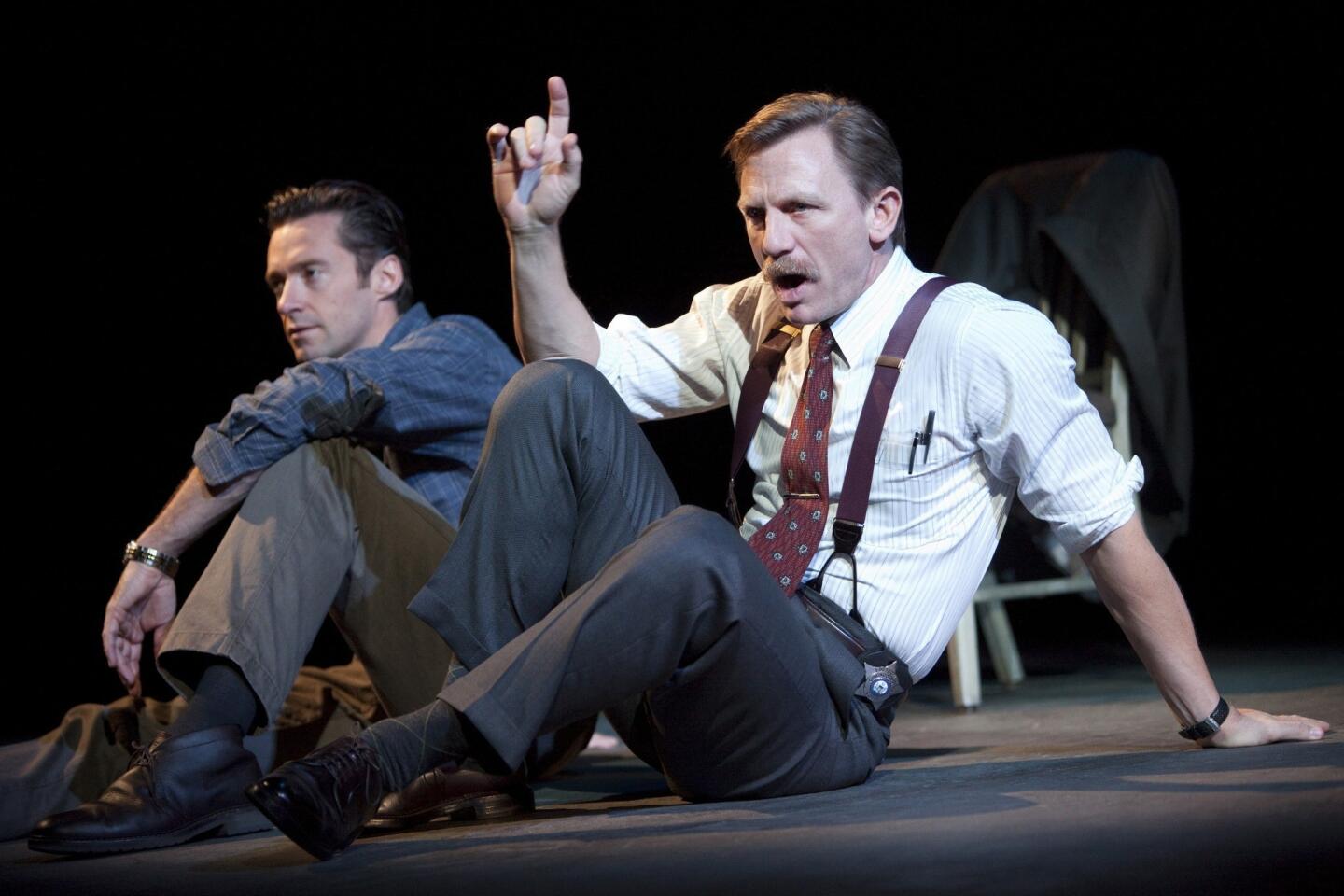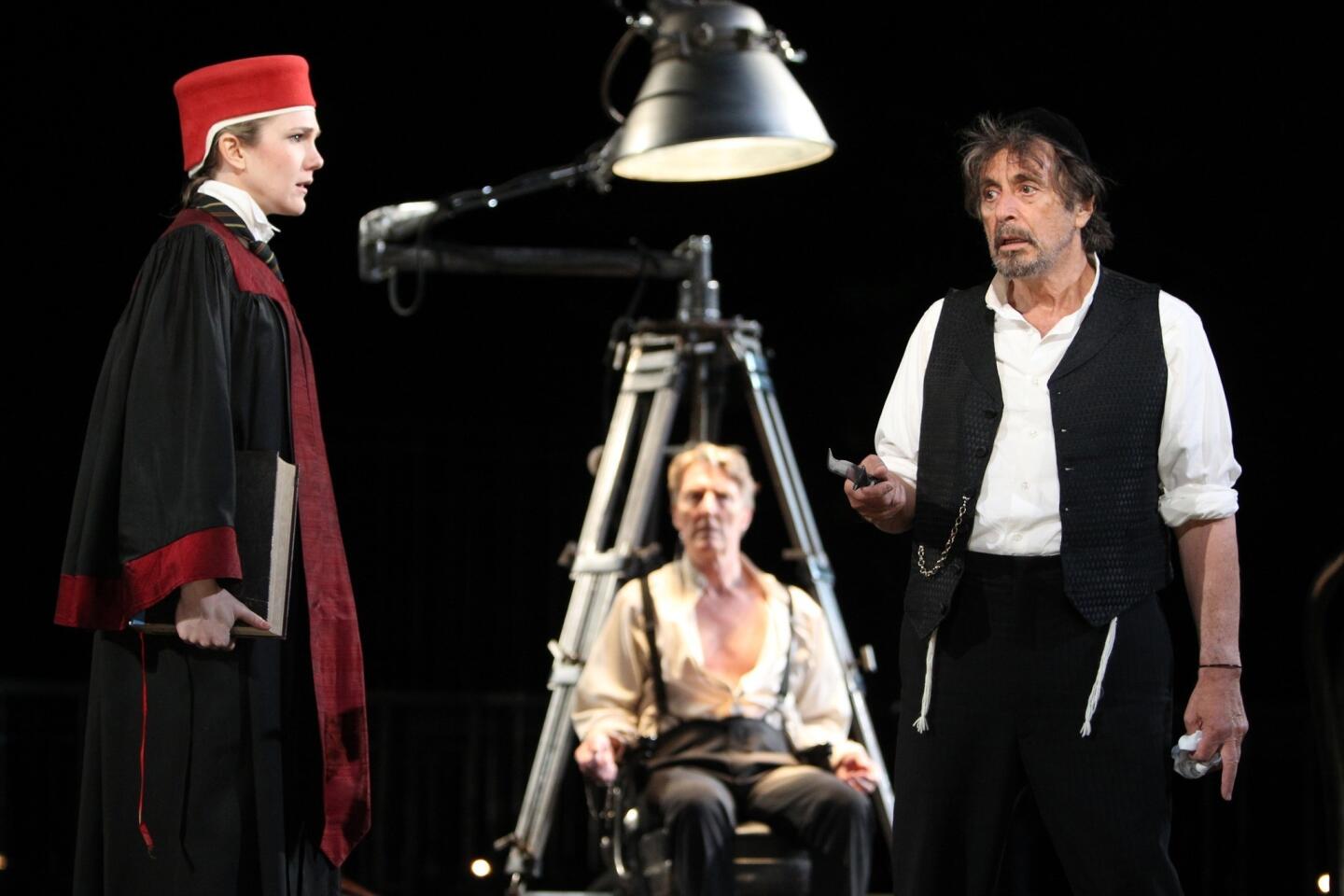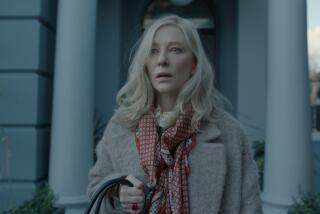Cate Blanchett channels Blanche in ‘Blue Jasmine’
One of the joys for a theater critic of watching Woody Allen’s “Blue Jasmine” is the chance to see Cate Blanchett take another crack at Blanche DuBois, a role that won her much acclaim in the touring Sydney Theatre Company production of “A Streetcar Named Desire.”
The film, Allen’s best in years, has been described as a cross between Tennessee Williams’ masterpiece and a Bernie Madoff-like tale, with Blanchett portraying Jasmine, the fancy Upper East Side wife of a crooked New York businessman thrown in jail for fraud.
The movie begins with Jasmine arriving at her sister’s dingy doorstep in San Francisco’s Mission District, still looking like a hundred-million bucks but flat broke, zonked on Xanax and clutching at the last remaining strands of her sanity.
Although she’s towing Louis Vuitton luggage and not a simple valise, and arriving by taxi instead of by trolley, you half expect her to exclaim, “They told me to take a streetcar named Desire, and then transfer to one called Cemeteries and ride six blocks and get off at — Elysian Fields!”
PHOTOS: Hollywood stars on stage
Instead, she depends on the kindness of her taxi driver to carry her bags and the soothing comfort of vodka once she’s inside her sister’s pleasant, but by no means posh, apartment.
Mixing flamboyant gestures with raw despair, Blanchett’s work in “Blue Jasmine” is the finest I’ve seen from her, a crystallization of her daring sensibility and theatrical gifts. Deliciously stagy (watch her uncap those pill bottles) yet undeniably haunted (look how she falls down a well when staring off into space), her performance finds psychological truth even when the histrionics threaten to topple the camera.
I don’t think Blanchett would have been quite as fearless, as fluid or as devastating without having undergone the challenge of playing Blanche. This is quicksilver acting of a very high order, mercurial in its movement yet impressively disciplined in its interpretation of a character who has spent her adult life floating in a cloud of illusions.
Liberated by Jasmine’s brokenness, Blanchett scales heights and tumbles into pits, switches from lavish theatricality to sorrowful indirection. She’s not worried about being too big or too small — like Blanche, she knows that bold art can reveal more than prosaic accounting. Blanchett has always been a courageous performer, but her recent theater work seems to have given her film acting even more freedom — a freedom she expertly calibrates for the screen.
PHOTOS: Arts and culture in pictures by The Times
From her “Streetcar” experience, Blanchett has no doubt gained a deeper understanding of the precarious plight of women who have tied their security to success with men. A trophy wife whose husband, Hal (Alec Baldwin), was about to discard her before the FBI came after him, Jasmine (who changed her name from the more banal Jeannette) is in the throes of a violent identity crisis, forced to confront whether it’s too late to acquire an authentic self.
When I saw Blanchett in “Streetcar” at the Brooklyn Academy of Music in 2009, I marveled at how the wings of this delicate moth, as Williams described the character, were made of steel. This wasn’t a replica of Vivien Leigh’s iconic performance in Elia Kazan’s 1951 film version. Under the direction of Liv Ullmann, Blanchett discovered something harder and more coolly calculating.
The façade of neurasthenia may have looked the same, but underneath the feline affectations and fluttery madness was a woman strategizing her survival. Her Blanche was above all an actress, deploying all the tricks of the trade to rescue herself from a fate more shameful than death — desperate poverty and humiliating dependence.
Jasmine is in a similar bind. She has nowhere to go but the home of her sister, Ginger (an exquisitely real Sally Hawkins), who plays earthy Stella to Jasmine’s strung-out Blanche. Hawkins’ characterization is as grounded as Blanchett’s is quivering. Adopted siblings with different birth parents, Jasmine and Ginger are a study in contrasts, and the different acting styles of Blanchett and Hawkins — both of whom richly deserve Oscar nominations — draw out the thematic vision of the film.
CHEAT SHEET: Spring Arts Preview
“Blue Jasmine” is a movie only Woody Allen could have made. Complaints that it is detached from the way real people live are silly, as Allen is first and foremost a modern-day fabulist, spinning urban tales that have the exaggerated accuracy of a New Yorker cartoon. But it is a work deeply indebted to Williams’ masterpiece and his gallery of contradictory female characters whose heroism is a function not of their stainless goodwill but of their determination to endure.
“There’s only so many traumas a person can withstand before they take to the streets and start screaming,” Jasmine acknowledges at a low point. But what makes her story so fascinating is her willful complicity with her own victimization.
To become the bejeweled queen of Manhattan dinner parties, Jasmine had to turn a blind eye to her husband’s shady business dealings and philandering ways. She remains deluded even after having lost everything but her clothes and those accessories she could hide from Uncle Sam. She’s still replaying the sentimental anecdote of hearing “Blue Moon” when Hal first swept her off her feet. And she hopes to be swept up again by another wealthy gentleman (Peter Sarsgaard), if only she can keep her secrets from him.
The parallels with Williams’ play could hardly be more obvious, and Blanchett couldn’t be better prepared. What makes her handling of Jasmine so provocatively fresh is precisely what made her Blanche so revelatory — her understanding that a woman of this sort is always performing, improvising a character for others rather than forming one for herself.
Jasmine is locked into a theatrical role every bit as inappropriate as that of the Southern belle in honky-tonk New Orleans. She flounces, she swoons, she beams like a Cartier bracelet in cheap San Francisco eateries. She rehearses her whitewashed back story as though the retelling of it will erase the tabloid headlines. Even her sorrow — observe the way despair and degradation smear across Blanchett’s face like expensive makeup — is a spectacle too grand for her setting.
Which isn’t to say that nothing about her is genuine. Jasmine’s anger at her sister for settling for a grocery store job and a grease-monkey boyfriend (Bobby Cannavale) is ferociously felt. It is this overwhelming drive to live a fairy tale existence that thwarts her adjustment to her grubby new circumstances. She doesn’t want the truth; she wants what ought to be true, to paraphrase Blanche.
This is an old story, but Allen and his luminous star give it a contemporary spin. There’s much that’s ugly and unsympathetic in this portrait, but Blanchett never lets us lose sight of the anguished humanity under Jasmine’s faltering show.
More to Read
The biggest entertainment stories
Get our big stories about Hollywood, film, television, music, arts, culture and more right in your inbox as soon as they publish.
You may occasionally receive promotional content from the Los Angeles Times.
